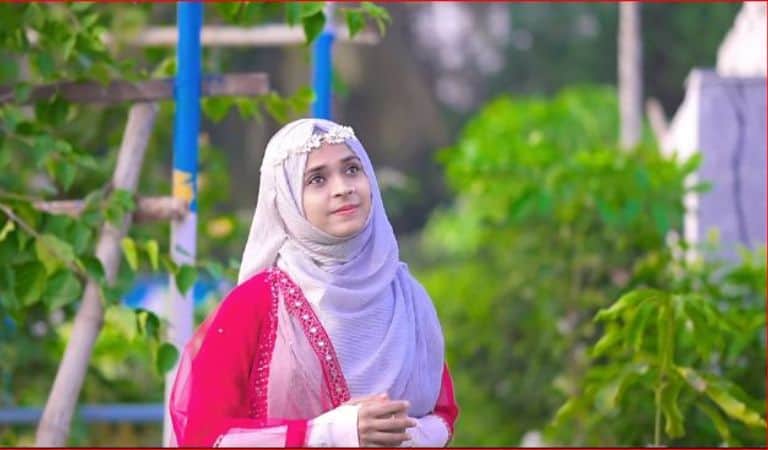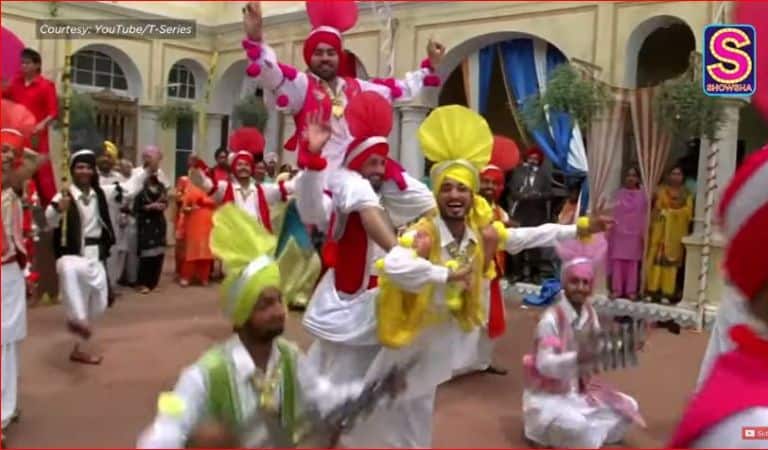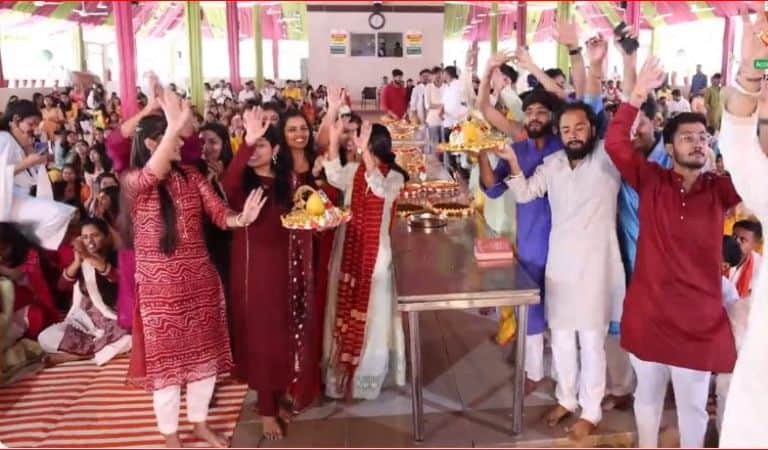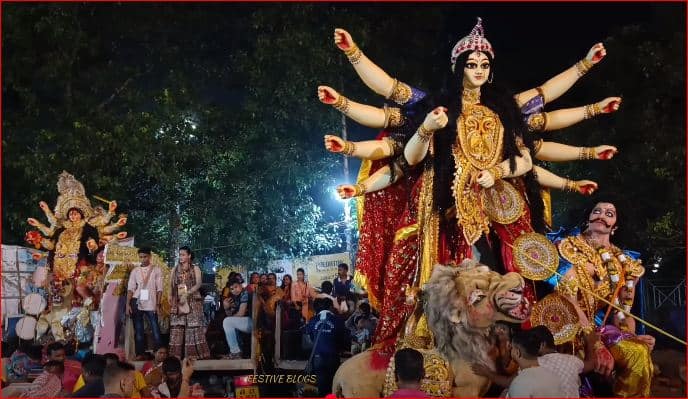
India is the only country in the world where the maximum number of people of different communities live, and festivals of every religion are celebrated with great enthusiasm and devotion, which binds people in the thread of unity. These festivals, along with religious significance, improve the cultural heritage of India and also show the depths of religion. Be it the “Festival of Lights” or the Festival of Colors, the fast of Ramadan (Eid ul Fitr) or the prayers of Christmas, all these festivals give a strong pleasure to their respective religions as well as a lot of joy to other religions. The varieties of cultural activities like dance, music, games, sacred worship, and festivals observed through collective feasts give the message of understanding each other and living together.
These religious festivals are not limited to only rituals and customs; rather, they are a living form of the philosophical and spiritual heritage of India. Through these people not only connect with their religion but also experience happiness, peace, and prosperity. Every festival connects us with our history, folk songs, customs, and dishes in the form of a story, which we dream about for our next generation. When we understand the vibrant religious festivals of India in depth, then we feel the real spirit—devotion, unity, and tradition—of this country, which gives this country a special identity in the world.
Hindu Religious Festivals in India
India is a vast and vibrant country where every region has its own culture and tradition. Hindu festivals are a precious part of this cultural diversity. These festivals are related not only to religious faith but also to social unity and traditions. Every festival is associated with some ancient story or event—like Diwali, which reminds us of Shri Ram returning to Ayodhya after 14 years of exile; Holi, which is associated with the story of Bhakt Prahlad and Asura Hiranyakashyap; and Navratri, which is the time to worship all the forms of Goddess Durga. These festivals are celebrated with great enthusiasm not only in temples but also in homes, schools, and every corner of the society.
Hindu festivals are often celebrated on lunisolar dates as per the Hindu calendar or sometimes on fixed dates of the solar calendar. They are sometimes related to seasonal changes or the beginning and end of agriculture. Festivals are an everlasting part of Hindu lifestyle, which keeps religion, culture, and traditions alive. These festivals strengthen people in a religious way and work to connect them with each other.
Diwali: Festival of Lights
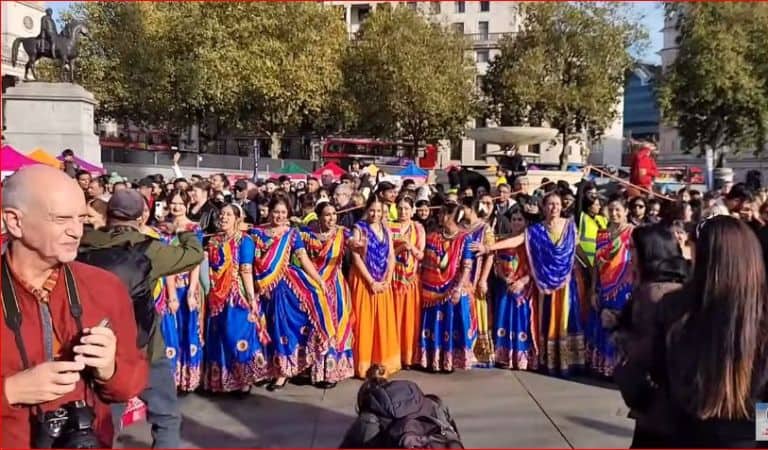
One of the most important festivals of the Hindu religion is Diwali, which is celebrated with great pomp all over India. Along with the Hindu religion, every community in India celebrates it with great enthusiasm. According to Hindu religious texts Ramayana and Mahabharata, when Lord Rama fought a war to free his wife, Sita, from the clutches of demon Ravana during the 14-year exile, in this war, with the help of Sri Hanuman ji, he burned the kingdom of Lanka and killed King Ravana and saved his wife. On the day Lord Rama and his wife Sita reached Ayodhya, people of the Hindu community welcomed their God by lighting incense and lamps, due to which this day is also called the “Festival of Lights.” Today not only Ayodhya but also people of the entire India celebrate this festival to see the victory of good over evil and to get the victory of light over darkness. On the day of Diwali, to get wealth, happiness, and prosperity in their lives, people of the Hindu religion clean their houses, wear new clothes, and welcome Diwali by bursting crackers.
Holi: Festival of Colors
The Holi festival is celebrated by the Hindu community to welcome the spring season. During the festival, people celebrate Holi with colors to express their happiness. For this they apply color on each other, throw gulal (sip goulash), sing songs, and make others eat sweets. The story of Holi is related to Hindu mythology—in the form of the story of King Hiranyakashipu, his son Prahlad, and sister Holika. According to the story, King Hiranyakashyipu’s son Prahlad was a devotee of Lord Vishnu who used to oppose his father’s death. In order to kill his son, he put his sister Holika along with his son in the fire, but Lord Vishnu saved Prahlad from the fire while Holika herself got burnt in that fire. To commemorate this event, people perform Holika Dahan a day before Holi. Holi is celebrated on the full moon of the month of Phalguna, and the whole country is filled with colors and merriment, which is why Holi is also called the Festival of Colors.
Muslim Religious Festivals in India
India is a secular country where people of every religion celebrate their festivals with great love and peace, and Muslim religious festivals are also an important part of the rich cultural heritage of this place. Major festivals of Islam like Eid-ul-Fitr, Eid-ul-Adha (Bakrid), Muharram, and Milad-un-Nabi are celebrated with great religious enthusiasm throughout the country. Eid-ul-Fitr is celebrated after the month of Ramzan when people happily meet after a month of fasting, share sweets, and offer prayers. Bakrid is a symbol of sacrifice and renunciation, when people sacrifice animals as a mark of their devotion. These festivals not only have religious significance but also give a message of unity, faith, and humanity in society. A unique confluence of worship, simplicity, and social harmony can be seen in Muslim festivals, which reflects the Ganges-Jamuni culture of India.
Eid al-Azha: Festival of Sacrifice
Eid al-Azha, also known as Bakri-Eid is the most important festival of Muslim Religion, and it is the biggest Eid celebration after Eid al-Fitr. This festival is related to a devotional story of Prophet Ibrahim (Abraham), in which he prepared to sacrifice his son Ishmael under the order of Allah. But, before the sacrifice, Allah sent a ram whom he ordered to sacrifice. In Eid al-Adha, animals such as goats, sheep, cows, or ungulates are sacrificed. The meaning of this sacrifice is divided into three parts: one part for family, another for friends and relatives, and the third for the poor and needy.
Eid al-Fitr: Festival of Happiness after the End of Ramadan
Eid al-Fitr is a festival that is celebrated after the completion of fasts in Ramadan, which is a part of the holy month of the Muslim religion. During this month, Muslims observe fast from morning till evening and show their spiritual devotion by not eating or drinking food and staying away from other physical needs. At the end of Ramadan, Eid al-Fitr is a festival of joy and gratitude. On this day people offer Namaz in the mosque, meet friends and relatives, eat lots of sweets, and exchange gifts. There is another important ritual on this day—giving Zakat, in which people help the poor and the needy. This festival gives the message of hope, love, and social unity.
Christian Religious Festivals in India
Christian religious festivals are an important part of India’s cultural landscape, which is celebrated with devotion, peace, and enthusiasm at different places across the country. Major festivals of Christianity, such as Christmas Day, Good Friday, Easter Day, and Palm Sunday, are celebrated with great devotion in India, especially in Kerala, Goa, Mumbai, Chennai, and Northeast states.
Christmas Day is celebrated on 25 December, which is the anniversary of the birth of Jesus Christ, and on this day churches are decorated, carols are sung, and people give gifts to each other. Good Friday reminds us of the sacrifice of Jesus, while Easter Day reminds us of his rebirth. These festivals are not only celebrated in a religious manner but also give the message of love, faith, and humanity. In India, most Christian festivals are celebrated together by people of all religions, and it is the pride of our country that we, people of one religion, share our happiness with people of other religions and enjoy living together.
Christmas Day: Birth of Jesus Christ
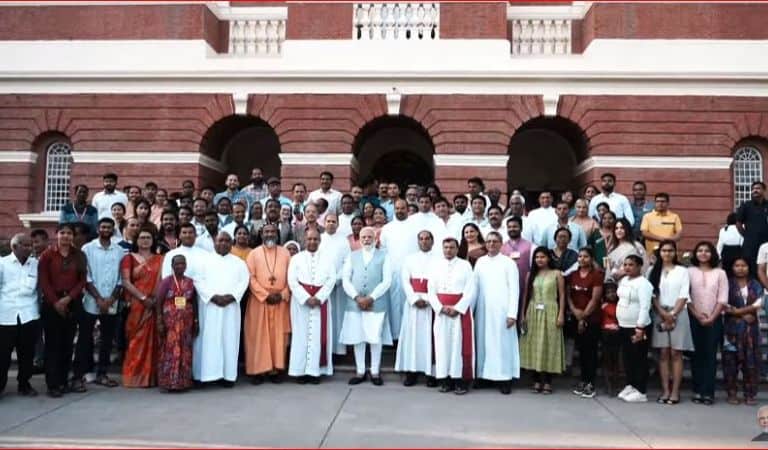
Christmas is a big and huge Christian festival, which celebrates the birth of Jesus Christ, whom Christians consider the son of God. On this day people attend church services, sing carols, exchange gifts, and spend time with family. Homes are decorated with Christmas trees, lights, and nativity scenes. The 25th of Christmas is celebrated on December 25, and this day is celebrated with great enthusiasm all over the world, especially in Western countries and Christian communities. This day gives the message of love, peace, and unity.
Good Friday: Commemoration of the sacrifice of Jesus Christ on the cross
Good Friday is a special day that Christians celebrate to remember the sacrifice of Jesus Christ on the cross. It is a day of grief and contemplation, in which people remember the suffering and death of Jesus, which he suffered for our sake. This day is celebrated through prayers, fasting, and church service, in which the story of Jesus’ sacrifice is told. Christians remember this day for their suffering and for the salvation of humanity.
Sikh Religious Festivals in India
Sikh religious festivals are a bright aspect of India’s spiritual and cultural diversity, providing an opportunity to remember the history of Sikhism, the lives of the Gurus,, and their teachings. These festivals have special significance in the Indian state of Punjab, but the Sikh community throughout the country celebrates them with great reverence and enthusiasm. Guru Nanak Jayanti (Gurpurab), which is celebrated as the birthday of Guru Nanak Dev ji, is the most important festival. On this day,, special events like Nagar Kirtan, Katha, Bhajan,, and Langar are organized. Baisakhi, which is the Sikh New Year and the day of the founding of the Khalsa Panth, is also celebrated with great pomp. Festivals like Hola Mohalla and Maghi are also an important part of Sikh traditions. These festivals reflect Sikh history, service, and bravery nd instill a sense of unity, dedication,, and devotion among people.
Guru Nanak Jayanti
Guru Nanak Jayanti, also known as Gurpurab, is an important festival of Sikhism. This festival commemorates the birth of Guru Nanak, who was the founder of Sikhism. On this day, Sikhs gather in Gurudwaras (Sikh temples), pray, read from the Guru Granth Sahib (the holy book of Sikhism),, and participate in processions. A special ritual of this day is Langar, which is a community meal served to all irrespective of their religion or background. During Guru Nanak Jayanti, the values of equality, humility,, and devotion are taught to all.
Baisakhi: Harvest Festival and Establishment of Khalsa
Baisakhi is a festival that, besides being a harvest festival, has historical significance for Sikhs. This day commemorates the establishment of Khalsa in 1699 by Guru Gobind Singh, which was the formation of a Sikh community in which initiated Sikhs were united and united with a religious purpose. On this day, Sikhs visit Gurudwaras and sing hymns and take part in processions. Baisakhi is special for Punjab as it marks the beginning of the harvest season, and people celebrate this day with folk rituals like dandiya and bhangra and also enjoy feasting with each other.
Jain Religious Festivals in India
Jain religious festivals are an important part of India’s spiritual purity and traditions based on the principle of non-violence. Jain festivals are dedicated to inner-soul purity, self-discipline, and the valor of non-violence. The most important festival is Paryushan, which is a sacred occasion for both the Digambarmbar and Shwetambar communities. During this period people try to improve their lives with fasting, prayer, health,, and a sense of forgiveness. Mahavir Jayanti is celebrated as the birthday of Lord Mahavir, where his teachings of ahimsa, satya, and and aparigraha are remembered. Kartik Purnima andand Diwali (Moksha Divas as per the JainJain calendar) also hold special significance for the Jain community. The focus of Jain festivals is on devotion, meditation,, and soul development, which people celebrate with great peace and dedication, which deepens the religious vividness of India.
Mahavir Jayanti
Mahavir Jayanti is celebrated as the birth day of Lord Mahavir, the 24th Tirthankar of Jainism. The festival falls on the thirteenth day of the Shukla Paksha of Chaitra month, which generally falls between March and April. On this holy day, Jains visit the temple, anoint the statue of Lord Mahavir with water and contemplate on his teachings. Prabhat pilgrimage, peace pilgrimages, and charity are also the main identities of this day. Lord Mahavir’s principles of ahimsa, truth, asteya, celibacy and non-rejection still guide people.
Buddhist Religious Festivals in India
Buddhist religious festivals are a peaceful and deep aspect of India’s religious heritage, based on the life of Gautam Buddha, his teachings,, and the principle of compassion. The main aim of these festivals is to promote inner spiritual purity, meditation,, and the feeling of grace. The most important festival is Buddha Purnima, which commemorates Gautam Buddha’s birth, enlightenment,, and mahaparinirvana (nirvana) on the same day. This festival is celebrated on Visakh Purnima,, and on this day people participate in worship, meditation, and charity. Festivals such as Losar (Tibetan New Year), Dhamma Chakra Pravartan Din, and Ullambana are also important in the Buddhist community. During these festivals, sermons, almsgiving and peace paths take place in temples and stupas. Buddhist festivals give the message of peace, harmony, and non-violence, which further enriches the religious and spiritual traditions of India.
Buddha Jayanti: Birth of Lord Buddha
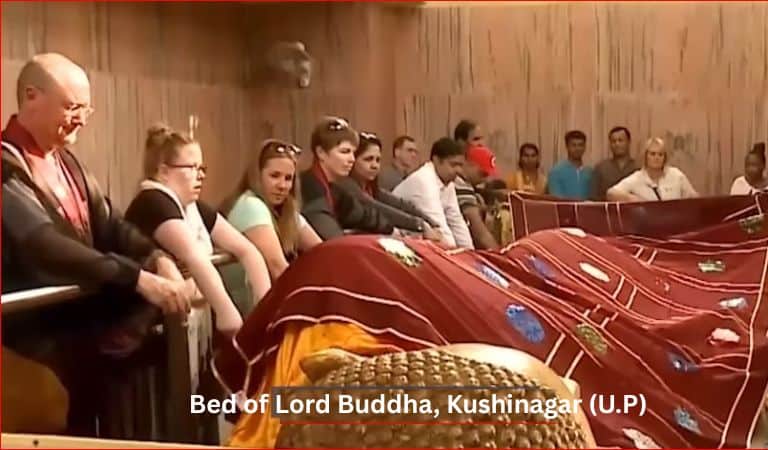
Buddha Jayanti is a festival that commemorates the birth, enlightenment, and death of Lord Buddha, who was the founder of Buddhism. This day is a holy day for Buddhists, in which they perform prayers, rituals, and processions. Many Buddhists visit Buddhist temples and meditate, offering flowers and incense to the idols of Buddha. The festival of Buddha Jayanti represents peace, compassion, and wisdom, which are the basic principles of Buddhism.
Other Religious Festivals in India
India is a country where, along with major religions, some smaller and ancient religious traditions have also created their own distinct identity. Zoroastrianism, which we know as the Parsi religion, is an ancient religious tradition that came from Iran. Parsi communities are concentrated in Mumbai and Gujarat, and their festivals, like Navroz (New Year) and Khordad Sal (Zoroastrian birth anniversary), are celebrated with peace and sanctity. Judaism, i.e., Jewish religion, has also been present in India for almost 2000 years. There are small Jewish communities in Mumbai and Kochi who celebrate festivals like Hanukkah and Passover along with their religious traditions.
Similarly, the Bahá’í Faith is a modern religion based on the principles of unity, peace, and equality. The main representation of this religion in India is in the form of the Lotus Temple (Delhi), where people of every religion come for prayer and peace. Also, tribal or Adivasi religions of India, like Sarna, Gondi, and Santal, worship nature and ancestors. Their life is connected to nature, and they keep their religious heritage alive through work, deities, and nature worship. All these religions represent the wonderful religious vividness and unity of India.
Zoroastrian Festivals
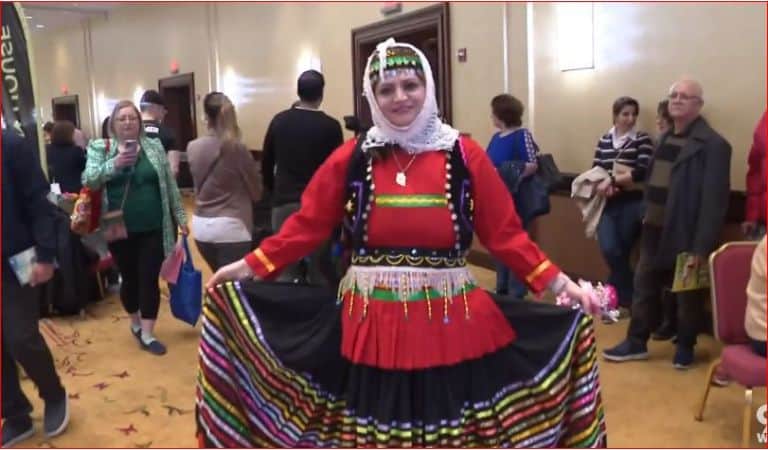
Zoroastrianism, which is adopted in India by the Parsi community, has some important festivals, such as Nowruz (Persian New Year) and Zarthost No Deeso (death anniversary of Prophet Zoroaster). Nowruz is celebrated on the first day of the Iranian calendar, approximately on 20 or 21 March. This is the time to meet with family, pray, and eat food. Zoroastrian Day is a sad day that commemorates the death of the Prophet Zoroaster and is celebrated with prayers in Zoroastrian fire temples.
Conclusion: Unity in Diversity Through Festivals
Religious festivals in India provide a platform for people from various backgrounds to come together and celebrate their shared values of love, faith, and spirituality. These festivals not only hold religious significance but also showcase the unity in India’s diversity. Whether through the lights of Diwali, the colors of Holi, or the sacrifices of Eid al-Adha, religious festivals offer a chance for people to unite, share joy, and foster harmony within their communities


